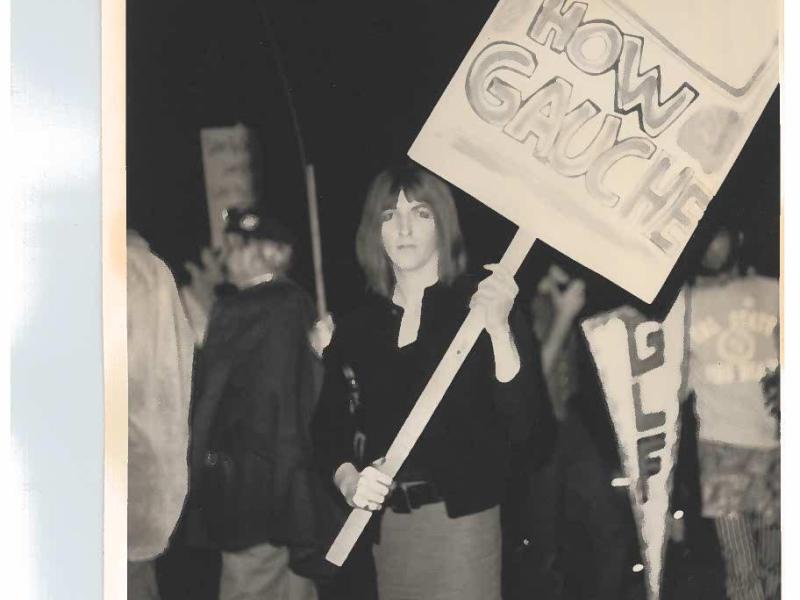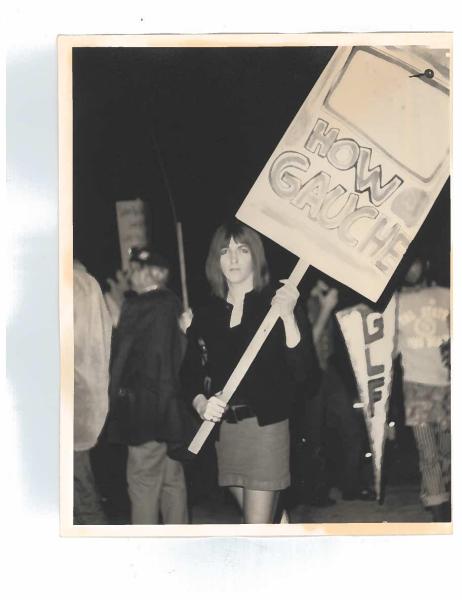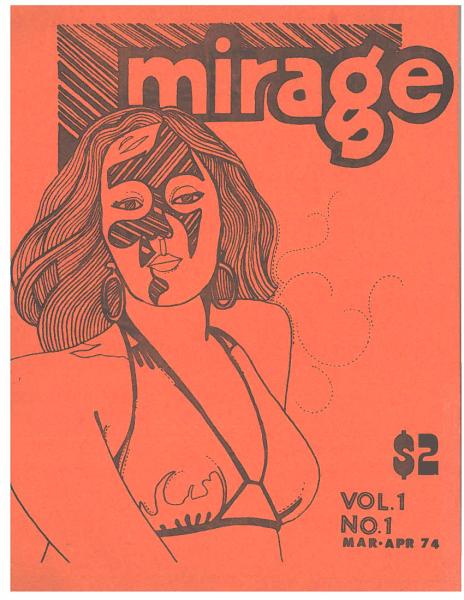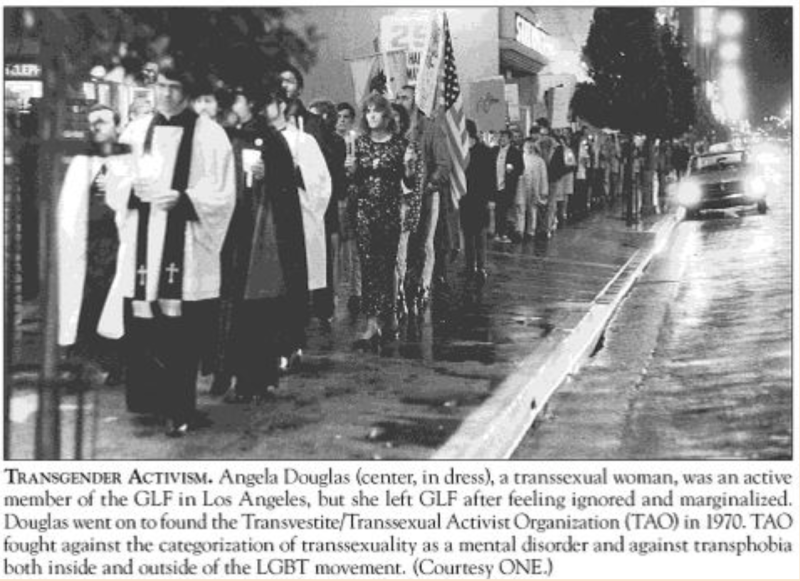Born in 1943, Angela Lynn Douglas came out and began to live as a woman in 1969. She started her career as an underground writer for the Los Angeles Free Press that same year and wrote hundreds of articles and columns for The Berkeley Barb, The Advocate and Bay Area Reporter (both gay publications), and Everywoman (a woman’s paper). Throughout her youth, she performed with a number of bands across the U.S. and (during her later school years) Tokyo, Japan, including “The Casinos”, “The Red Devils”, “The Nomads”, “The Charades”, “The Sovereigns”, and “Euphoria”.
Due to her popularity as an underground rock musician and writer, her name was popularized and gossip began to spread. People began to speculate on the reasons for her surgical transition, which was completed by Dr. John R. Brown in 1977. In a news release from July 28, 1982 (ONE Archives, Subject Files, Douglas, Angela Lynn) Douglas was quoted as saying “At least this may end belief that I was a male homosexual prior to the sex change, which many believe. It simply wasn’t so. I changed sex in hopes of regaining Norma.” There is no way to discredit this quotation, but it is interesting to note, as it contrasts to another recorded quote that Douglas was also is self-described bi-sexual according to a news clipping from the Berkeley Barb. That essay, “Transexuals’ Dilemma” by Jennifer L. Thompson stated that upon being questioned why she underwent the transition (in another news article called “Angela Lynn Douglas: Transsexual Superstar”) Douglas replied “I developed inner feelings of wanting to be a female when I was a kid and probably had a basic hormone imbalance” (ONE Archives, Subject Files, Douglas, Angela Lynn).
The many press articles and intense exposure that Douglas received in the wake of her transition made her a target for others to exploit to make money off of her growing fame. During one such instance, a man named Stan Grossman with Newcastle Publishers of North Hollywood made a fortune by selling thousands of copies of X-rated magazines about her using erotic photos of her post-operation without paying Douglas royalties. Douglas attempted to sue him, but it is unknown if she was successful in getting anything at all.
In 1970, Douglas formed a liberation organization called TAO, or the Transsexual Action Organization, with the purpose of supporting and amplifying transsexual people and voices. She also put her passion for organizing and writing into the publishing of two magazines, Mirage and later Moonshadow, which printed from 1972 to 1980. Both magazines had a similar intention to TAO, aiming to bring together transsexual people as a community in a time when transsexuals were persecuted, abandoned, and alienated from heterosexual and homosexual communities alike. Mirage in particular was a place where transsexual writers and artists of any medium could have a safe space to express and share their work. In a TAO information page in Moonshadow, it says, “...the TAO was instrumental in placing a transexual rights demands in the platform of the California Peace and Freedom party-- ‘The right to determine the uses of one’s body, as in sex change operations and others.’” TAO especially worked to aid those transsexual women who were taken advantage of, or often left out of feminist causes or women’s liberation.
Though TAO came to an end in 1973 and both magazines stopped printing in 1980, Angela Douglas is remembered as an transsexual activist who worked throughout her life to help the community and normalize transsexuality.






